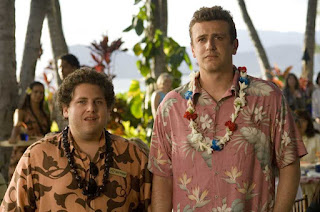Suburbia
Almost eighteen years ago, we moved out of town to a quiet back road. There wasn't much to this new neighborhood -- a gravel road in need of more regular maintenance, two or three new houses, and a few houses that had been standing for quite a bit longer -- but it was the escape my mother (a country girl by birth and a city resident by force) needed.
As time went on, our side of the road filled but the neighborhood maintained a certain "removed" air. There was still a divide between us and neighboring towns. We could still walk to the trees a half-mile behind our house to build tree forts and catch frogs; we could still leave doors unlocked without too much concern. Even better, we had a ready-made starting point for trick-or-treating, in an area that only got the neighborhood kids and almost guaranteed a good haul.
We knew our neighbors, by name if not always well. It was good.
Other houses went in north of us, creating a spin-off neighborhood. There were quiet signs of suburbia starting to appear, but nothing major.
So it remained until I went to college. Then one day as I drove home, I saw the beginnings of houses in the corn field behind the house. And, far more alarmingly, there were advertisements for lakeside property.
Lakeside? In a corn field?
Our own neighborhood shifted; several families left, fearing city taxes and general encroachment. All the while, the field behind the house was sold off in pieces.
Then, they dug a big hole and it filled with water. Seems this man-made lake was an answer to the perpetual slough back there. A second hole was dug, roughly where the trees had been. A water tower was built. Roads were paved. A daycare went in.
Now, there are around 80 houses, several apartment buildings, and a long line of townhouses where we used to play. The area is officially "city" property -- the boundary sits at our backyard.
The housing crisis hit there, too, shown mostly in the number of houses that went back up for sale. As it turns out, McMansions aren't on everybody's budget, much less McMansions with shoreline. But new ones kept popping up anyway.
Even now, there are almost always three houses being built. As soon as one is done, another will start; before too long, the remaining empty lots (now littered with construction trash and the occasional volunteer corn plant) will be full and they'll have to add on a street and expand again.
The strange thing about all of this -- despite my general feelings about subdivisions and the lack of creativity in the houses built -- a big part of me kind of likes it. I understand people's desire to live out here. I mean, I came back (and not entirely not by choice). For now, it's still quieter and you can still see the sunset.
It's only a matter of time, however, before things start to feel just a little too cozy. This once-quiet neighborhood gets more traffic than it ever has (certainly more than a gravel road should) and the town is starting to stretch its legs. By the time we're completely crowded in, my parents will be itching for space once again.
And that should make life interesting.
As time went on, our side of the road filled but the neighborhood maintained a certain "removed" air. There was still a divide between us and neighboring towns. We could still walk to the trees a half-mile behind our house to build tree forts and catch frogs; we could still leave doors unlocked without too much concern. Even better, we had a ready-made starting point for trick-or-treating, in an area that only got the neighborhood kids and almost guaranteed a good haul.
We knew our neighbors, by name if not always well. It was good.
Other houses went in north of us, creating a spin-off neighborhood. There were quiet signs of suburbia starting to appear, but nothing major.
So it remained until I went to college. Then one day as I drove home, I saw the beginnings of houses in the corn field behind the house. And, far more alarmingly, there were advertisements for lakeside property.
Lakeside? In a corn field?
Our own neighborhood shifted; several families left, fearing city taxes and general encroachment. All the while, the field behind the house was sold off in pieces.
Then, they dug a big hole and it filled with water. Seems this man-made lake was an answer to the perpetual slough back there. A second hole was dug, roughly where the trees had been. A water tower was built. Roads were paved. A daycare went in.
Now, there are around 80 houses, several apartment buildings, and a long line of townhouses where we used to play. The area is officially "city" property -- the boundary sits at our backyard.
The housing crisis hit there, too, shown mostly in the number of houses that went back up for sale. As it turns out, McMansions aren't on everybody's budget, much less McMansions with shoreline. But new ones kept popping up anyway.
Even now, there are almost always three houses being built. As soon as one is done, another will start; before too long, the remaining empty lots (now littered with construction trash and the occasional volunteer corn plant) will be full and they'll have to add on a street and expand again.
The strange thing about all of this -- despite my general feelings about subdivisions and the lack of creativity in the houses built -- a big part of me kind of likes it. I understand people's desire to live out here. I mean, I came back (and not entirely not by choice). For now, it's still quieter and you can still see the sunset.
It's only a matter of time, however, before things start to feel just a little too cozy. This once-quiet neighborhood gets more traffic than it ever has (certainly more than a gravel road should) and the town is starting to stretch its legs. By the time we're completely crowded in, my parents will be itching for space once again.
And that should make life interesting.


Comments